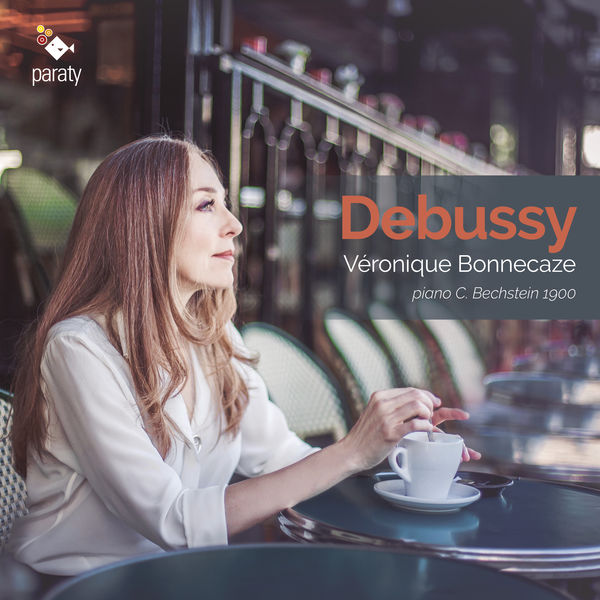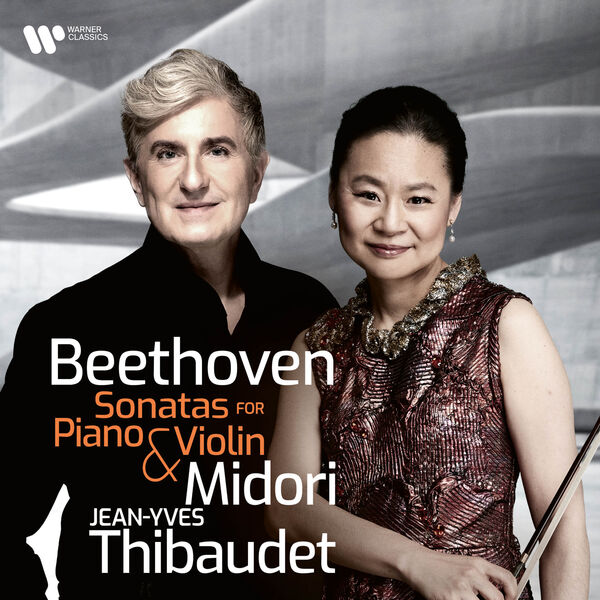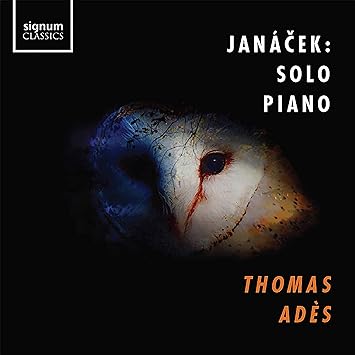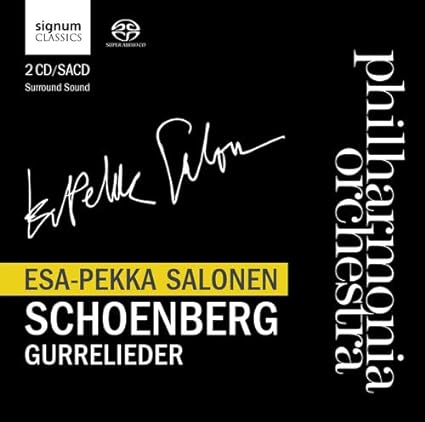You are using an out of date browser. It may not display this or other websites correctly.
You should upgrade or use an alternative browser.
You should upgrade or use an alternative browser.
The classical what are you listening to now ? thread.
- Thread starter TheDecameron
- Start date
davidjt
pfm Member
Bizet's Symphony (No. 1) in C - always a favorite, but this time to reassure myself that I haven't gone completely gaga. Throughout last night's Radio3 In Concert programme the announcer confused what the orchestra actually played - the Roma symphony - with the 'Symphony in C' 'written when he was just 17, etc.' Since I'm not familiar with 'Roma' I was very discombobulated. (I'd only had the one glass of red wine, I think.)
It seems that no-one at the beeb actually listens to a borrowed European recording pre-broadcast. Odd.
It seems that no-one at the beeb actually listens to a borrowed European recording pre-broadcast. Odd.
Barrymagrec
pfm Member
Do you think R3 people have nothing better to do than sit round all day listening to music?
John Phillips
pfm Member
That's a relief. I put it down to my ageing brain mis-remembering the symphony in C and mistakenly expecting a quite exuberant start, which didn't materialize. I am now combobulated once more. Thanks.Bizet's Symphony (No. 1) in C - always a favorite, but this time to reassure myself that I haven't gone completely gaga. Throughout last night's Radio3 In Concert programme the announcer confused what the orchestra actually played - the Roma symphony - with the 'Symphony in C' 'written when he was just 17, etc.' Since I'm not familiar with 'Roma' I was very discombobulated. (I'd only had the one glass of red wine, I think.)
It seems that no-one at the beeb actually listens to a borrowed European recording pre-broadcast. Odd.
davidjt
pfm Member
Do you think R3 people have nothing better to do than sit round all day listening to music?
That's a relief. I put it down to my ageing brain mis-remembering the symphony in C and mistakenly expecting a quite exuberant start, which didn't materialize. I am now combobulated once more. Thanks.
To be fair, not actually numbering your symphonies and writing two in C major does lay a trap for the unwary announcer/producer/programmer.
I'd liken Roma to a symphonic poem rather than a symphony: it did seem to make sense coupling it with Pines and Fountains.
Barrymagrec
pfm Member
Vaughan Williams - An Oxford Elegy.
https://www.amazon.co.uk/s?k=vaughan+williams+oxford+elegy&i=popular&crid=8B0TS0WTH9CX&sprefix=vaughan+williams+oxford+elegy,popular,54&ref=nb_sb_noss_1
I haven`t played this nearly often enough over the last few years.
https://www.amazon.co.uk/s?k=vaughan+williams+oxford+elegy&i=popular&crid=8B0TS0WTH9CX&sprefix=vaughan+williams+oxford+elegy,popular,54&ref=nb_sb_noss_1
I haven`t played this nearly often enough over the last few years.
This site contains affiliate links for which pink fish media may be compensated.
Todd A
pfm Member

Some HIP Debussy. While I am not too wild about period keyboards from the first three quarters of the 19th Century or before (though I do fancy the best of them), I have something of a weak spot for modern grands from the first couple decades of the last century. Steinways and Bechsteins (as here), in particular, sometimes sound almost magical to my ears. Why that should be, I have no idea. And Debussy just seems like the ideal composer for such instruments. When I spied this release, I was interested for works and artist, not instrument, so the 1900 Bechstein is just icing in the cake.
Véronique Bonnecaze is, I am pretty sure, new to my collection. (I should probably be worried that I do not know for sure without scrubbing my entire collection.) On the evidence of this recording, she’s got chops. And the right ear for the right instrument with the right repertoire. She starts things off with a slow Clair de lune, though it never drags, and the decay of the piano adds a little something. Next, she moves to L’Isle Joyeuse and dispatches it with at times glittering, bright playing, with the sustain pedal at times blurring music into an amorphous delight. And that Bechstein really shines in the upper registers, bursting with color. The second set of Images follows, and each piece is nicely characterized, with the close sound accentuating some individual notes in a most appealing way. Indeed, the combo of instrument, music, and recording technique ends up sucking the listener into a detail oriented listening session.
The main attraction is of course the first book of Préludes. One can never have too many recordings. The only music I have collected more versions of is the New Testament. Bonnecaze delivers a fine performance. Listening here becomes even more detail oriented, and one is rewarded with color and a good amount of clarity where appropriate, and mystery where needed. True, Le Vent dans la plaine and even more so Ce qu’a vu le vent d’Ouest lack maximum oomph in the ff playing – Bonnecaze never thunders like Zimerman – but the tonal variation of the instrument really focuses attention. While upper registers sound bright, and lower registers a bit flat and dull and less powerful than on modern grands, the middle registers often sound most prominent. And by often, I mean always. That leads to some intriguing effects, not least in La Cathédrale engloutie, where the tolling bass notes sound woody and the right-hand playing can swell over it. She paces the critical piece nicely indeed. Each piece ends up distinct and distinctive. Nice.
La plus que lente serves as a punchy little encore, starting slowly, with the pianist lilting and wandering and then accelerating and punching out notes in a an almost drunken manner. The closest analog in my listening experience is Russell Sherman’s final movement in Beethoven’s Op 31/1.
So, a very nice Debussy recital overall, and one that makes me think I should probably expand my exposure to Bonnecaze’s discography.
Recorded sound is close and clear and offers up details. It also offers up either low-level analog hiss or pervasive low-level room noise that sounds like hiss. Or perhaps some low-level electronic noise that mimics hiss. That would be the first time that has popped up on a recording.
Barrymagrec
pfm Member
Humperdinck - Hansel and Gretel, the proper version with the two Elisabeths and Karajan.
https://www.amazon.co.uk/dp/B00005GJV1/?tag=pinkfishmedia-21
This is the recording that Walter Legge cited as proof that Stereo was not an advance.
https://www.amazon.co.uk/dp/B00005GJV1/?tag=pinkfishmedia-21
This is the recording that Walter Legge cited as proof that Stereo was not an advance.
This site contains affiliate links for which pink fish media may be compensated.
westsea
Retirement present
Grieg Piano Concerto in A Minor. Op 16 A Naxos recording which sounds quite good to my aging ears.. Next up another old favorite, again not played for a while; Mozart - Concerto for Clarinet and Orchestra in A K622 Emma Johnson. ASV. Listened.... an enchanting piece, a chamber orchestra matches a room environment, much more so than that of a full scale setting. Perhaps its my system!
Last edited:
Todd A
pfm Member

Wrapping up my first listen to this set. The cycle as a whole slightly exceeded expectations. It does not rise to the level of Cerovsek/Jumppanen or Papavrami/FFG among current century sets, but it is basically on par with Capuçon/Braley or Fouchenneret/Descharmes. The Midori/Thibaudet duo is half French, and boasts one of the elitist of elite pianists from the last several decades, so that does not surprise. Were this duo to record more, I would be keen to hear said recording(s).
Todd A
pfm Member

A different take on Janacek. Ades' playing is basically shorn of all sentimentality, and he pedals less than some other pianists, rendering much of the music with greater clarity than normal. That means that in On An Overgrown Path and In The Mists he doesn't sound as tuneful in some places, though the Second Book of On An Overgrown Path, in particular, comes off remarkably well. The clear, sometimes cold, and sometimes ferociously played sonata reminds me of Benedikt Koehlen's in places, though with preferable tempo choices. (Plus, it's just better.) I expected good things and my expectations were exceeded.
rough edges
Sapere Aude
Chopin Mazurkas/Kolesnikov/Hyperion - a very nice collection of 24 Mazurkas played in the order of the pianist’s choosing.
Todd A
pfm Member

Hoooooo-boy. I bought this download just because, but man, now I'm kicking myself for not buying it earlier. I've got several versions, including by some big-name conductors - Boulez, Kubelik, Sinopoli, and my heretofore fave Rattle - but Salonen just sort of laps them. I always equate Salonen the conductor with precise, clear direction, and I primarily associate him with more modern music, where he excels. (That written, his Mahler 3 is monumentally great, and his Bruckner 4 ain't none too shabby.) He brings the precision and clarity, but he adds intensity, vitality, and theatricality to this live recording. When he needs to deliver lush beauty, he can, but when he needs to ramp up the tension and power, he delivers and then some. All throughout the much swifter sounding than the timing suggests performance, he will back the singer perfectly, and then rip through tuttis with abandon. This more than his recording of Ligeti's Le Grand Macabre shows off his operatic bona fides. Also all throughout, I hear the influence of Wagner more clearly than normal, and multiple operas make their influence known - whiffs of Tristan, Meistersinger, Gotterdammerung can be heard - and Strauss is in there, too. Clearly, Salonen should write his own opera and then conduct it, but surely an Elektra can be delivered. And a Ring. I know he was going to lead one, but it got cancelled. That must be rectified ASAP.
There are nits to pick. The sound can be too congested in the loudest passages, some choral singing, while off the charts in excitement and tautness, may not be the clearest, and maybe some of the singers sound less than pristinely perfect at times. But this is a live recording, so that doesn't matter.
I have not been this jazzed about a Schoenberg recording since picking up the Diotima’s recording of the quartets and before that probably Kent Nagano’s mind-numbingly great recording of Die Jakobsleiter. This recording is just all kinds of ass kicking great. A late year purchase of the year, I tell you what.
gingermrkettle
Deep vein trombonist
Did you ever check out any of Gardiner's recent ones? I really liked the Erwartung and Verklate Nacht discs.I have not been this jazzed about a Schoenberg recording since picking up the Diotima’s recording of the quartets and before that probably Kent Nagano’s mind-numbingly great recording of Die Jakobsleiter.
herb
brain's right hemisphere

Hoooooo-boy. I bought this download just because, but man, now I'm kicking myself for not buying it earlier. I've got several versions, including by some big-name conductors - Boulez, Kubelik, Sinopoli, and my heretofore fave Rattle - but Salonen just sort of laps them. I always equate Salonen the conductor with precise, clear direction, and I primarily associate him with more modern music, where he excels. (That written, his Mahler 3 is monumentally great, and his Bruckner 4 ain't none too shabby.) He brings the precision and clarity, but he adds intensity, vitality, and theatricality to this live recording. When he needs to deliver lush beauty, he can, but when he needs to ramp up the tension and power, he delivers and then some. All throughout the much swifter sounding than the timing suggests performance, he will back the singer perfectly, and then rip through tuttis with abandon. This more than his recording of Ligeti's Le Grand Macabre shows off his operatic bona fides. Also all throughout, I hear the influence of Wagner more clearly than normal, and multiple operas make their influence known - whiffs of Tristan, Meistersinger, Gotterdammerung can be heard - and Strauss is in there, too. Clearly, Salonen should write his own opera and then conduct it, but surely an Elektra can be delivered. And a Ring. I know he was going to lead one, but it got cancelled. That must be rectified ASAP.
There are nits to pick. The sound can be too congested in the loudest passages, some choral singing, while off the charts in excitement and tautness, may not be the clearest, and maybe some of the singers sound less than pristinely perfect at times. But this is a live recording, so that doesn't matter.
I have not been this jazzed about a Schoenberg recording since picking up the Diotima’s recording of the quartets and before that probably Kent Nagano’s mind-numbingly great recording of Die Jakobsleiter. This recording is just all kinds of ass kicking great. A late year purchase of the year, I tell you what.
Ordered thanks, I am a sucker for Gurrelieder performances having seen Abbado's performance with the young Mahler
Orchestra at an Edinburgh Festival. Mind you I have been listening to a Boulez recording since 1973 and knew every note apart from the dopped chain!
Todd A
pfm Member
Did you ever check out any of Gardiner's recent ones? I really liked the Erwartung and Verklate Nacht discs.
I have not, but I will now keep an eye out for them. Thanks
Todd A
pfm Member

Liszt and Pärt do not necessarily seem like natural discmates, but Vanessa Wagner has other ideas. By blending a big chunk of Liszt's Harmonies Poétiques et Religieuses (including Cantique d'amour, which is not listed in the booklet) with three selections from Pärt, one gets where she is coming from. In an interview in the liner notes, she states that this is not a concept disc, but rather a recording focused on different expressive styles of spirituality, and that she senses an innate similarity between the two composers. If it works for her, it works for me. The Liszt selections tend toward the slightly quick, slimmed down, not OTT romantic side, while the Pärt sounds austere as all get out. Wagner mentions her high regard for Für Alina, and it shows. The Liszt does not perhaps match up to the best of the best in the included pieces - though her take on Funérailles boasts some of the finest, most delicate right hand playing I've heard - but it is more than good enough to make me wish she had just recorded the whole thing. And her Pärt makes me want to investigate more piano music from him. Superb sound. Those French micro-labels always punch above their weight.


